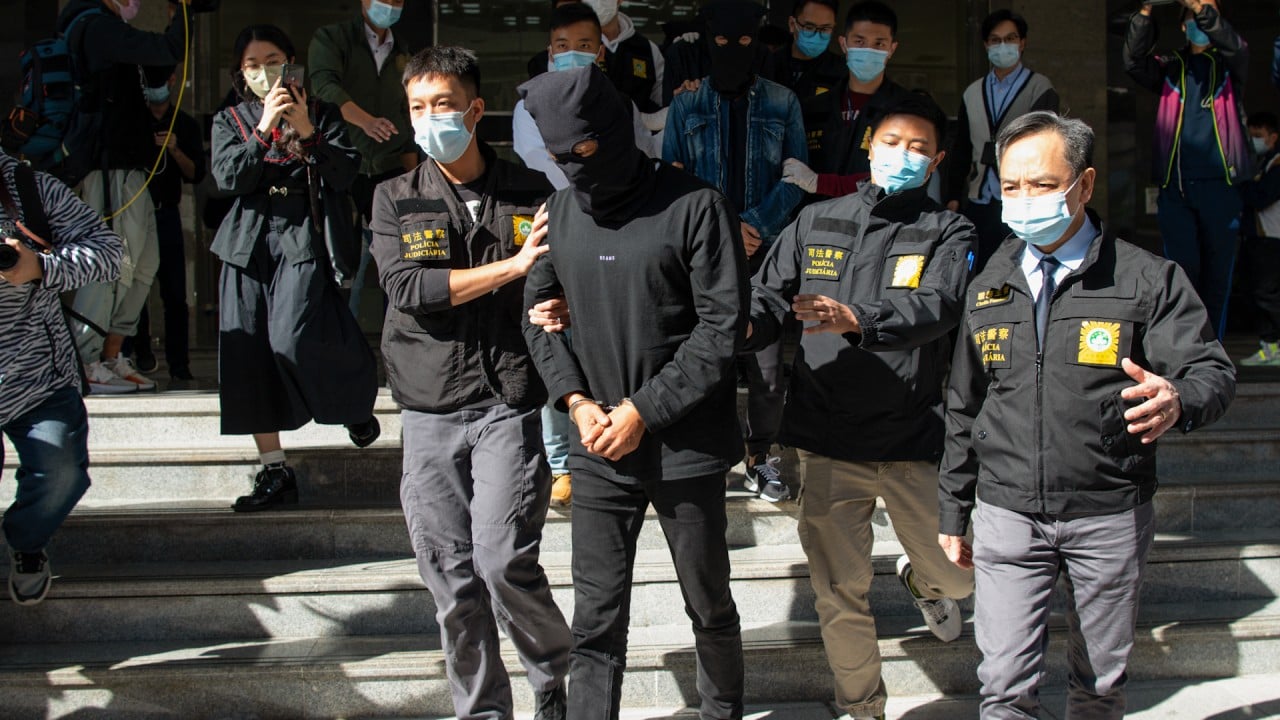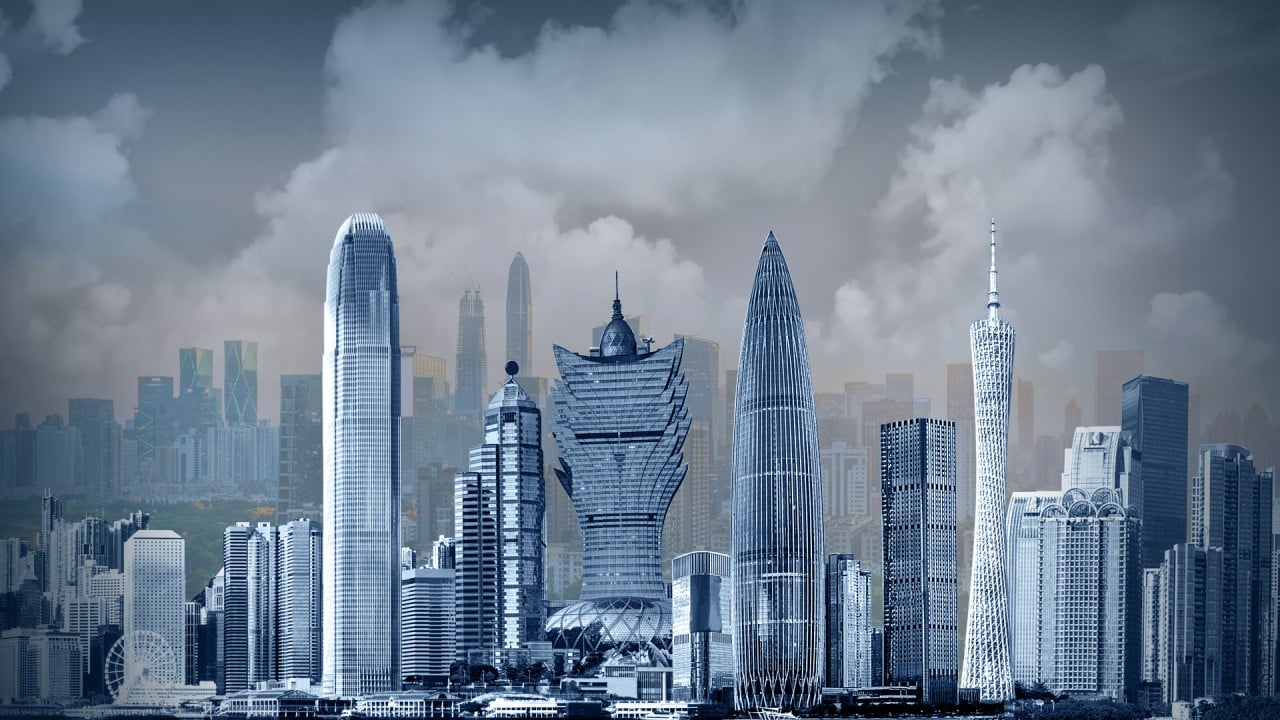
New casino concessions but less gaming: can Macau reinvent itself?
- The Macau government earlier this year announced that it would grant six new casino licences, but experts say it will not be business as usual
- As Beijing pushes to clean up the gaming sector and diversify the city’s economy, observers say Macau is left with no option but to transform the casino industry and tap into regional opportunities
The contrast between the “Fantan” stalls – a Chinese game similar to roulette – which in previous centuries thrived in the city, and the 42 dazzling casinos that sprang up in the past two decades could not be greater. These opulent buildings decorated with flowery carpets, marble floors, ostentatious chandeliers, and pristine gambling tables have brought billions to a city that was once a sleepy fishing village.
But its overreliance on casinos is more than ever being put into question, and Beijing wants to see major changes taking place.
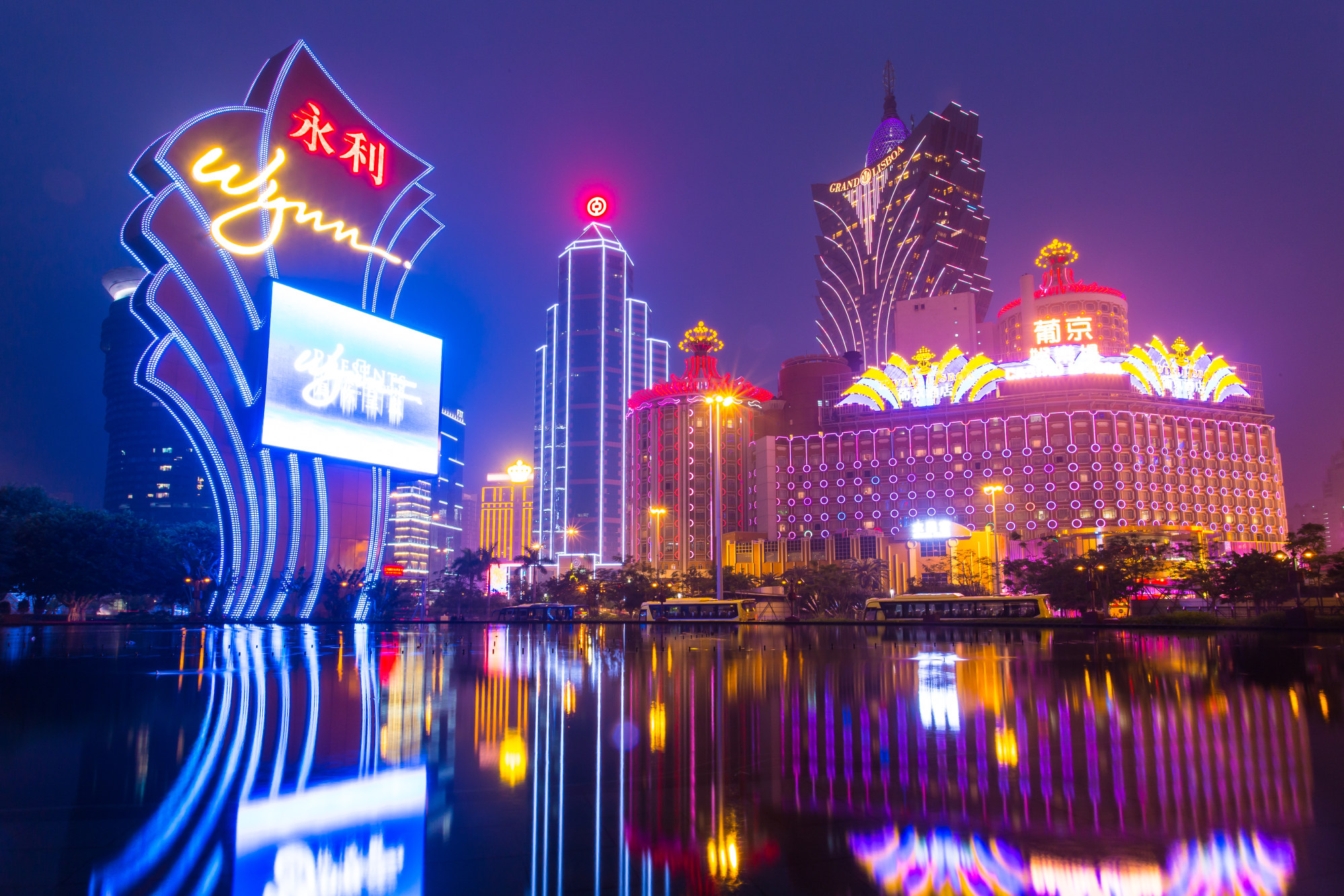
As Macau gears up to launch a public tender for six gaming licences, observers say that the former Portuguese colony is now left with no option but to forge a new identity for itself – the billion-dollar question is how.
“There was tremendous growth until 2019 and, let’s be honest, it is probably about time to control the market. Macau will have to change and be something else beyond gaming,” said Pedro Cortés, a Macau-based leading lawyer who is an expert on gaming law.
“The overreliance on gaming is an old problem,” he noted. “I think the government wants to reduce its importance and eventually abolish it. At least, the weight of gaming will have to diminish. In fact, if Macau could, it would have no gaming at all.”
Macau makes the biggest reform in gambling laws in two decades
The meteoric rise of the special administrative region as the world’s largest gambling hub hasn’t gone unnoticed. Thousands of headlines have been written about the city, which has been dubbed the “Las Vegas of Asia”.
The fact that Macau has been the top destination for China’s high-rolling millionaires explains part of its success. Wealthy businessmen and officials used to flock to Macau to gamble huge amounts of money, skirting Beijing’s strict rules on how much cash could be taken out of the country.

When he joined the 15th anniversary of the former Portuguese territory’s return to China in December 2014, Xi talked about the need to “actively promote an adequate diversification and the sustainable development of the economy”. He noted that it was necessary to “better regulate the gaming industry” with “courage and wisdom”.
That same month, Li Gang, director of the Central People’s Government Liaison Office in Macau, also sent a clear warning: “The dominance of one industry can lead the city to prosperity, but it also can lead to its demise.”
China wants to turn Macau from a casino den into a tech base
Xi’s nationwide crackdown on corruption started to scare off Chinese high rollers, which triggered a plunge in gaming revenue after 2014. But the president’s words seemed to have sunk in slowly in Macau. Casino operators made some attempts to diversify their offerings, while fortunes continued to be amassed in the years that followed.
After the pandemic swept through the city, the excessive economic dependence on gambling became even more obvious and the government started moving forward with plans to revamp the industry.
“I believe we’ve reached a sort of a turning point. A lot has been said and not much has happened, but this time diversification needs to be taken a lot more seriously,” said a Macau legal expert, who worked with one of the gaming operators and requested not to be named.
“Beijing is not going to continue tolerating the overgrowth of industry and the local government needs to make that happen,” he said.
Macau casino stocks sink amid fears of China crackdown on illegal gambling
Authorities have meanwhile started to crack down on junket operators – sort of go-betweens responsible for running VIP rooms and bringing in high rollers from mainland China to Macau.
Since November, police have arrested 15 people, including the bosses of the two largest operators of junkets in Macau, on illegal gambling and money laundering charges, which has shaken the entire gaming industry.
As authorities show less tolerance, analysts have predicted the decline of the opaque VIP sector – which used to make up about half of the gaming revenues before the pandemic.
Game change
The need to overhaul the industry and tighten its oversight has also been made clear in the new legal proposal for the gaming sector. Its details were shared last month, when the government announced that the number of new licences would be capped at six and last for only 10 years – half the length previously granted, despite an option of extending it for another three years if needed.
“The new law sends a message of continuation, stability, maintaining the status quo, but with necessary reforms,” said Sonny Lo Shiu-hing, a political scientist and commentator who has written extensively about Macau.
The licences of the six current casino operators SJM Holdings, Sands China, Wynn Macau, MGM China, Galaxy Entertainment, and Melco Resorts are set to expire in June. Both existing and potential operators will have to apply through a new tender process.

Lo does not completely exclude the possibility of new contenders, but he finds it unlikely.
“The six franchises are predictable. I think the potential bidders will try to form strategic alliances and the losers will perhaps find ways to work with the winners of the concessions,” he said.
“It looks like the existing six will be the winners, but they cannot rest on their laurels without coming up with new things. The 10-year-plan that they will present to the authorities will be extremely important.”
The Macau-based legal expert, who asked not to be named, said that he too was confident that the current operators would be able to remain in the game.
“Granting six licences is the most sensible decision in the current context. The concessionaires made significant investments and it’s fair that they are allowed to maintain their licences – I believe the six will run and win,” he said.
“I don’t see other candidates, in particular foreign companies, wanting to run for a 10-year licence. For a new operator, it would take perhaps three to four years to build the infrastructure and then they would only have about six years to operate it and recover the investment.”
Beijing to appoint 4 national security officials in Macau
The draft bill – which passed at first reading and is going to be further discussed at the city’s legislative assembly – clearly mentions in its opening article that gaming must not undermine China’s “national security”. It also notes that the industry should “foment the adequate diversification and the sustainable development” of the city’s economy, adding that operations should be “free from criminal influence”.
Sérgio de Almeida Correia, a Macau-based lawyer, said the emphasis on national security and greater social responsibility demanded from the operators was expected.
“These changes are in line with the politics from the central government. They also reflect the campaign against corruption and money-laundering led by the Chinese president, because there were billions leaving China and not returning. It was money that would go through Macau but it wouldn’t stay here either,” Correia said. “Cleaning up the junket industry and the questionable businesses around the casino industry had to happen.”
Correia said that “for now the goal is cleaning up the underground, so the gaming industry can generate revenues in a more transparent manner without causing power imbalances in Macau and mainland China”.
“The next step, I believe, will be to completely eliminate gaming or at least dramatically reduce its weight to say 20 per cent of the city’s revenues,” he added.
An old problem
After Hong Kong became a British colony in 1842, Macau’s role as an important trading port declined, and in an attempt to bring in cash and diversify the city’s economy, the Portuguese government eventually decided to legalise gaming.
With the sector quickly becoming the main tax revenue source, it didn’t take long before the overreliance on gambling was felt.
“I am trying to reduce the number of Chinese lotteries in the hope that it might be possible to suppress them entirely, and in the same way I hope to be able … to reduce the number of fantan gaming houses, with the [objective] of eventually doing away with any revenue derived from such sources,” said former Macau governor Artur Tamagnini Barbosa to Hong Kong’s Daily Press in December 1929.
“This line of action has to be, in my opinion, the principal concern of the person entrusted with the government of the colony,” he said.
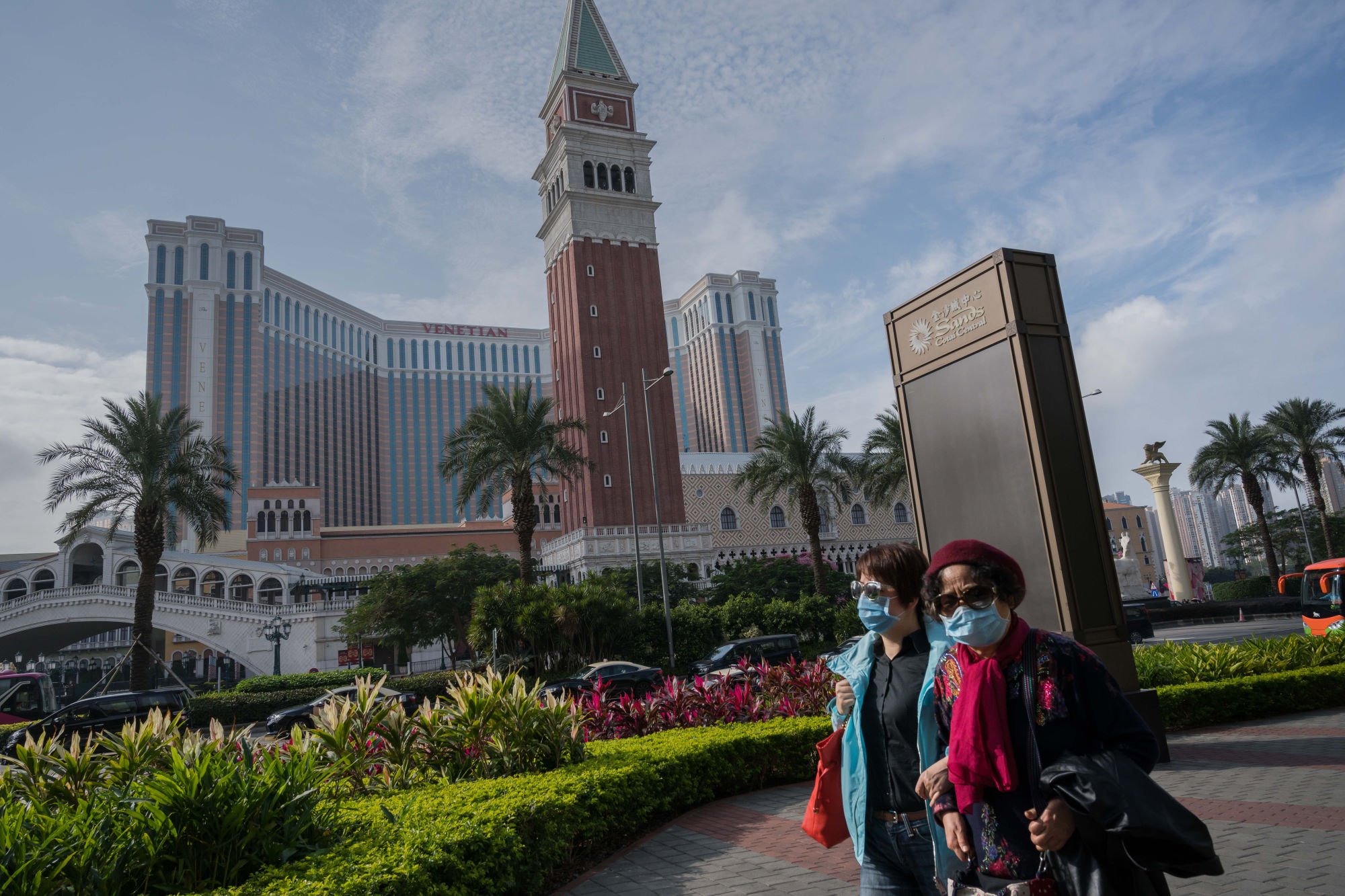
But the fact is that while other industries ended up disappearing or relocating to mainland China, gaming only gained strength – and even more so after the Portuguese colony was transferred to China in 1999.
Going bust: the rise and fall of Macau ‘junket king’ Alvin Chau
Leonardo Dioko, a professor at the Institute for Tourism Studies in Macau and director of its Tourism Research Centre, said it was hard to predict how much the gambling sector was about to change.
“Because of Macau’s unique circumstances and history, I don’t think there really is an ‘ideal’ model or template for the industry,” the expert said.
“Twenty years ago, when Macau embarked on the radical decision to liberalise the gaming industry, few could probably have anticipated with certainty the remarkable change that it would usher.
“It has propelled the economy dramatically but at the same time spurred profound and rapid social and cultural changes. So it is really hard to understate the significance of these new amendments to Macau’s development in the next 20 years.”

Macau’s gaming industry usually accounts for more than half of the city’s gross domestic product and about 80 per cent of government revenue. It is also a top employer – by the end of 2020, more than 82,000 people worked in the sector, which corresponded to almost a fifth of the city’s working population.
Lo, the political scientist, expects the Macau casino industry to be further consolidated and conform with the laws from mainland China in the next five years.
“The casino concessionaires should not allow the overgrowth of junkets to an extent that undermines China national security,” he said.
The draft bill said Macau’s secretary for economy and finance was responsible for issuing junkets licences, and these VIP gaming promoters would only be allowed to operate in one concessionaire.
“As we know, the junkets overgrew into something bigger than the casino concessionaires,” the political scientist said. “But going forward, if junkets persist, they will be on a small scale, controllable, and the concessionaires will be liable for their behaviour. They will be held directly accountable to the government in Macau and indirectly accountable to the Chinese government.”
Macau junket king Alvin Chau’s arrest a warning to casinos
Ricardo Siu, an associate professor in business economics at the University of Macau, expected gaming concessionaires to further expand the mass market while operating their own VIP businesses directly. He noted that the gambling industry would need to follow a more sustainable path.
“As a socially controversial industry, sustainability largely means that its business practices should be responsible to society – including the emphasis on responsible gaming and high business transparency – instead of simply chasing high business turnovers and profit for shareholders,” the scholar said.
Correia observed that the gaming operators would have to bring more to the city.
“The operators have no option but to invest more. Let’s be frank, even if the revenues are slashed to half, that would still be an astronomical figure. The resort-casinos have already been built – now it’s a matter of creating more activities and renovating the existing spaces,” he said.
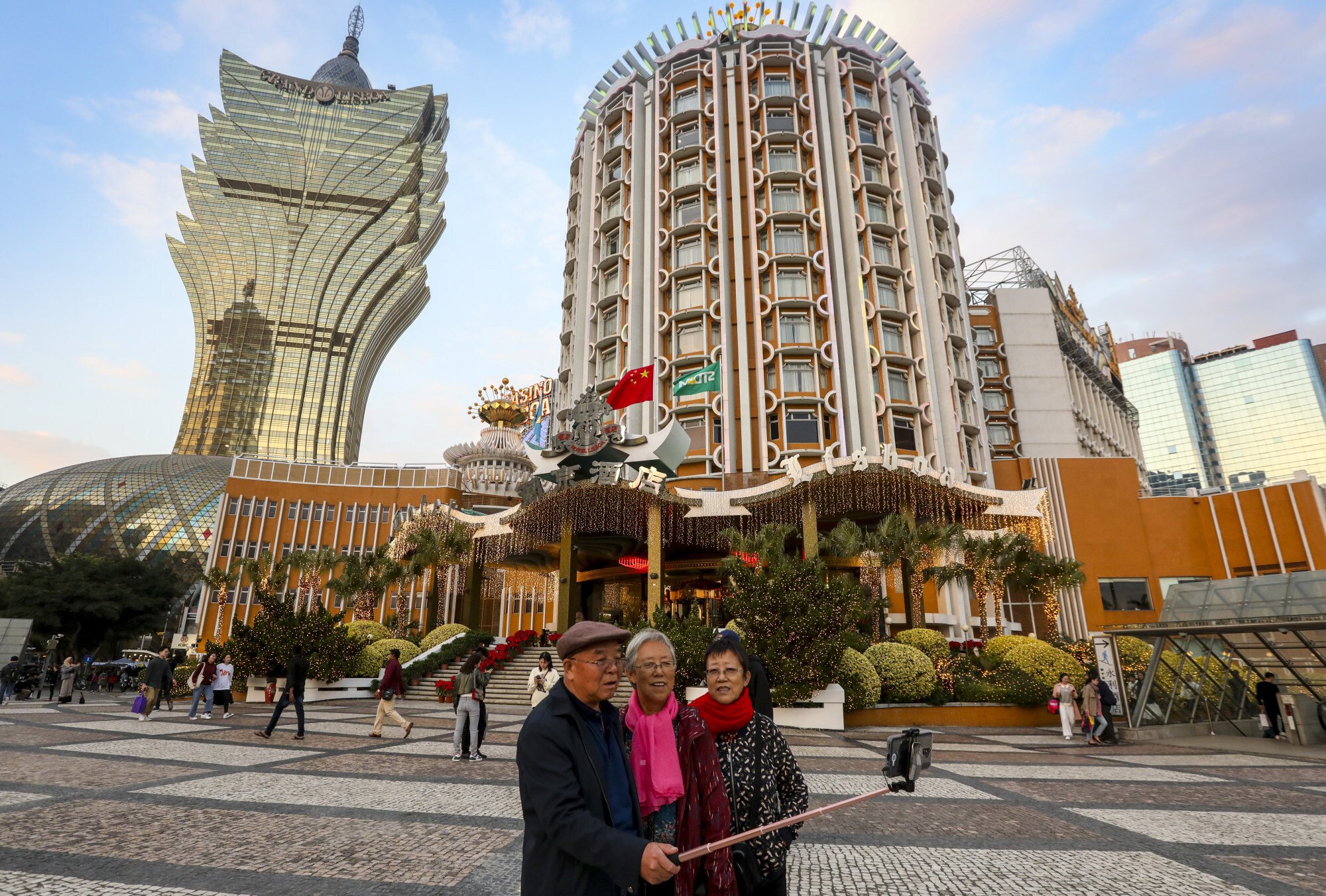
Lawyer Cortés also said that the only way for the concessionaires to remain in the city was through offering additional elements.
“The shows that Macau once had will have to return to the city if Macau wants to be a world-class tourism destination, which happens to have gambling,” he said.
“Gaming will perhaps become residual. Let’s see how the control of capital will go and the potential role of the digital yuan in the gaming industry. It could be a way of introducing tighter controls, monitoring spending, and even imposing spending limits on gamblers,” said the managing partner of Macau law firm Rato, Ling, Lei and Cortés.
Previous news reports suggested that authorities may be looking into introducing the digital yuan in the city’s casinos, which could be used as a tool to curb illicit cross-border payments and money laundering.

Regional competition
Up against so many changes, some observers wonder if Macau will be able to stand out among its Asian counterparts.
“I think other casino destinations in Asia, such as Singapore, Cambodia or Japan, certainly will be destinations of concern,” said Amy So Siu-Ian, an associate professor and director of the Centre for Tourism and Integrated Resort Studies at the University of Macau.
“However, Macau has its own advantages and attractiveness. Firstly, given the location advantage, we have a huge mainland market that keeps our industry moving. Secondly, we have international high-quality integrated resorts, unique cultural heritage and gastronomy culture,” she said.
How to make Macanese pasteis de nata, Macau-style Portuguese egg tarts
Official statistics show the city’s visitors spend most of their money on shopping, and then on accommodation and food – these estimates exclude gambling.
But Cortés said that the city should do more to attract tourists from other Asian countries, such as Indonesia, India and South Korea.
“I don’t see much competition coming from Cambodia, the Philippines or Singapore. But Japan, where casinos have been announced, could be more of a greater regional competitor, because they have other attractions that we don’t have,” he said.
Correia argued that Macau needed to push things further and carve out its space as a “quality tourism destination”.
“Macau should think about building a museum of contemporary art and have prestigious festivals – people travel to see art,” he said.
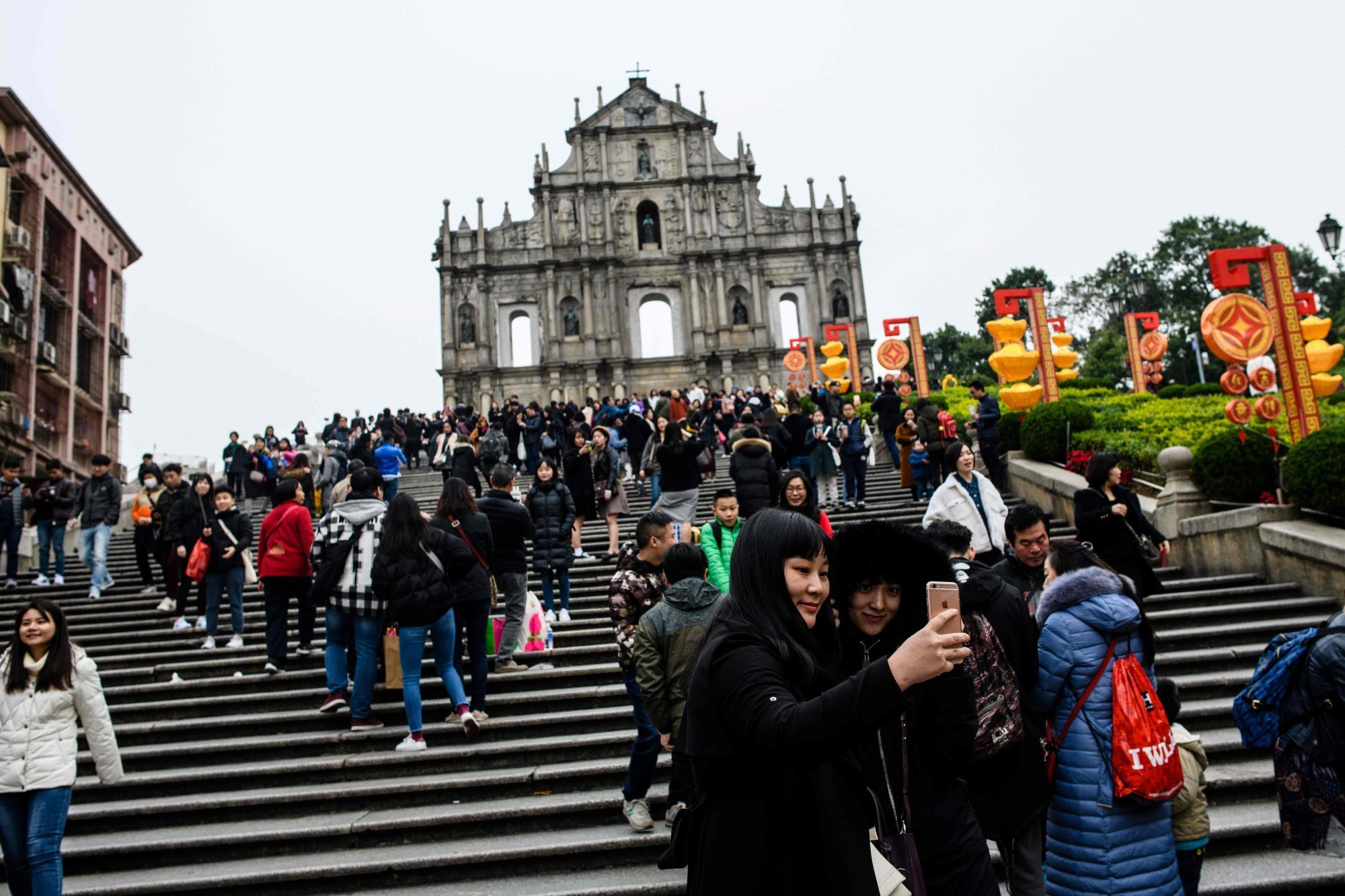
Beyond borders
Some observers say that the key for a more diversified economy seems to lie across the river, where the neighbouring Chinese island of Hengqin sits.
Last September, Macau’s chief executive Ho Iat Seng announced details about the Guangdong-Macau Intensive Cooperation Zone plan for Hengqin. He described it as a “unique project in China and the world”, which would “blend the best aspects” of the two systems.
Under the Guangdong-Macau joint administration, the island that stretches over 106 square kilometres is meant to be focused on four main areas: finance; technology and high-end manufacturing; traditional Chinese medicine; and tourism and conferences.
“After several years of development, Macau has been suffering since last year from the impact of the new coronavirus pandemic, and our entire society has become aware of the fragility of a unique economic structure,” Ho said, adding that several factors had limited Macau’s growth, including space and resources.
He also conceded the city had in recent years lost much local talent who studied overseas and hadn’t found suitable opportunities back home. “They just went to [work in] casinos or stayed abroad,” Ho said.
Dioko described the city’s diversification via Hengqin as “Macau’s trump card”.
“It is clear that Macau’s future development … will be most likely more diversified than it currently is,” he said.

But to move forward, political scientist Lo said Macau needed to focus on developing talent and gauging employers’ needs.
“The Macau government has to think deeper and do better. They should upgrade the education levels of the Macau people and attract skilled mainland Chinese talents – diversification requires more skilful and adequate workers,” he said. “This issue should be studied urgently.”
Lo noted that Macau should also tap into opportunities with Portuguese-speaking countries. In 2016, Premier Li Keqiang delivered a package of measures meant to boost Macau’s economy and transform it into a gateway between China and the Portuguese-speaking world.
“There is sufficient space for Macau to grow into an international hub. But I don’t think Macau has been doing well enough. The links with the Portuguese-speaking countries should be better used and experts should be lured from overseas,” Lo said.
“The Macau government should think about a balance between internationalisation and ‘mainlandisation’ – the ‘mainlandisation’ has been traditional, but if Macau wants to reposition itself, it needs to have a concrete plan,” the political scientist said.
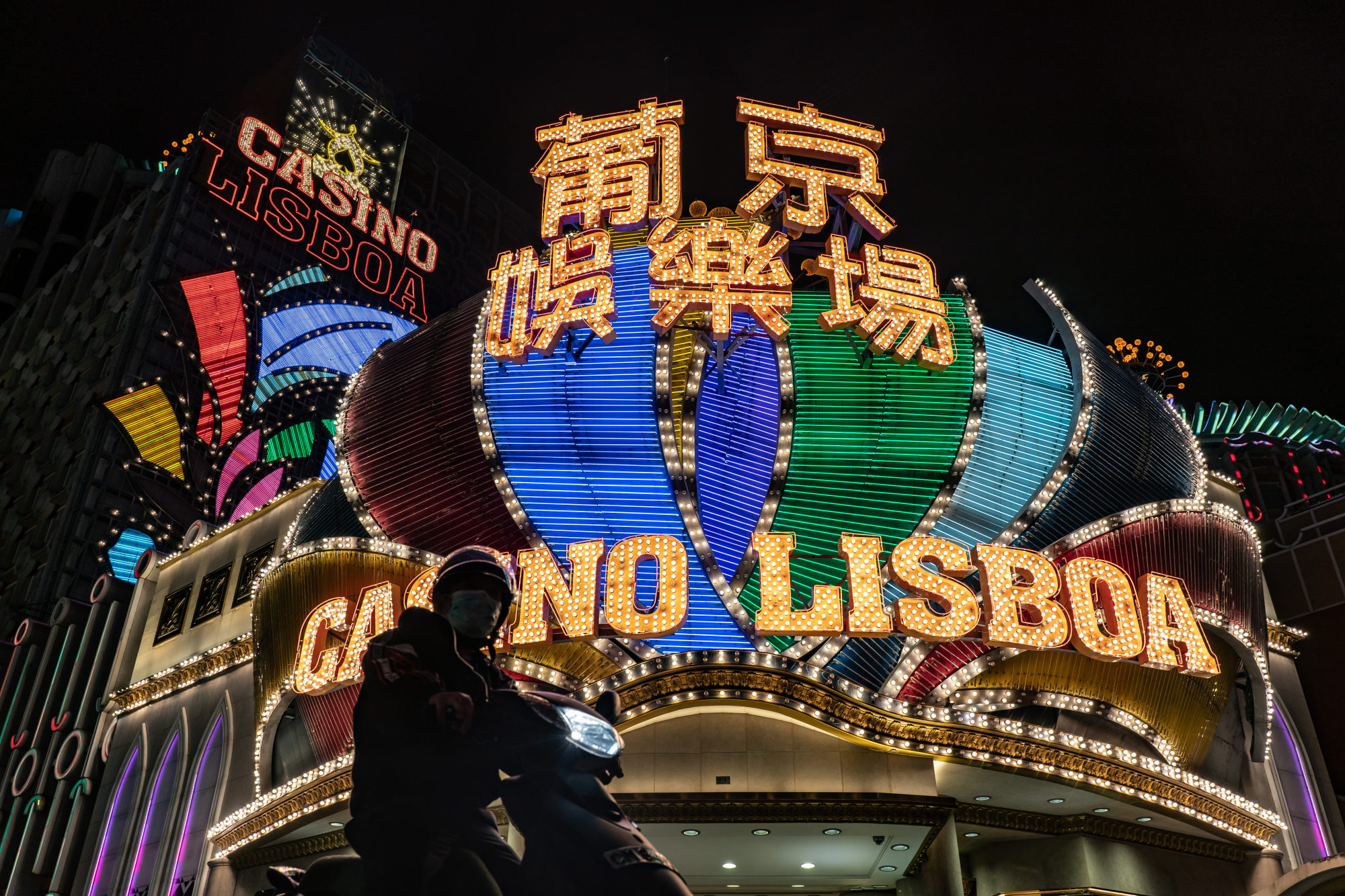
Losing its appeal?
While Macau’s casinos continue to be battered by strict coronavirus travel restrictions, experts say it is difficult to predict when things will return to normal.
“Whoever has a strategic plan should probably be ready to bin that at short notice. We are now two years into the pandemic when initially optimistic voices once prognosticated at most a year of disruption,” Dioko noted.
“That said, it is worth noting that for years Macau has depended quite a lot on visitors from Guangdong province and sectors such as retail, gastronomy – one of Macau’s strengths – and cultural heritage have been enduring draws for visitors. So if any recovery plans are in the works, I reckon they should be grounded on these durable sectors,” he said.
“Sadly, tourism sectors such as events, business, entertainment and lifestyle are by now comatose, and resurrecting these will need some miracle.”
As Macau opens up to Chinese visitors, can it become a luxury shopping hub?
Some fear that the world’s gaming hub may risk losing its allure and status.
“I believe that Macau’s international status will disappear. In fact, I think that a sort of mysticism and glamour is already fading away,” lawyer Correia said.
He puts it partly to the strict Covid-19 policies and also to dwindling civil rights and freedoms in Macau, following the 2019 anti-government protests in Hong Kong.
“There was no violence in Macau streets. Macau is a small city, which did not have the governing problems and the political problems of Hong Kong … People understand that is necessary to protect the national security and the rights of China,” he said.
“Unfortunately, Macau has lost freedoms and its quality of life has also decreased,” Correia said. “There needs to be a more critical mass in Macau. The city will lose its status if it limits itself to tourism from mainland China and if it does not attract and retain more workers and professionals from abroad.”
He said that a lot had to be done to improve the city’s fate.
“I think that there is interest in maintaining Macau as an international city – Macau is an ex-libris in China, a melting pot of cultures where east meets the west,” Correia said, adding that “better planning” and a more “daring” governance style were needed.

Others like professor Siu remain optimistic.
Once the city is able to overcome the pandemic and “when the irregular business activities – mainly the traditional junket-operated segment – are phased out and the more transparent mass-market segment is developed over time … Macau could still retain its attraction as a competitive casino-tourism destination in the world”, he said.
For professor So, forging a new identity may mean that the city’s model will be a lot closer to Las Vegas than it ever was.
“I certainly think Macau is going for a new identity, which is towards more of an entertainment leisure type of destination and rely less on gambling,” she said. “The model will become closer to the Las Vegas one. Tourists who come to Macau will be more the leisure type of individual tourists, who are looking for a unique Macau experience, such as eating and exploring less popular sites.”
Lawyer Cortés said he trusted the city’s resilience.
“Macau was once known as the Monte Carlo of the Orient and then it became known as the Las Vegas of Asia,” he said. “Macau is Macau. And it will continue to be. Outsiders may not realise this, but there is in the city great ability to adapt and change.”


